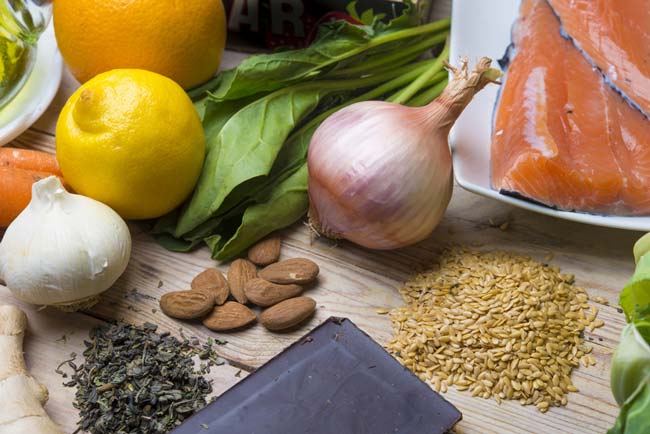You may have heard about the antiangiogenic diet if you’ve watched or read the news lately. But do you really know what that is?
Well, let’s first define the word “angiogenesis.” Angiogenesis is the development of new blood vessels in the body. While this is a positive thing in some respects, the process can also stimulate the development of destructive new cells, including cancer cells and those involved in heart disease and stroke.
Over the last few decades, angiogenesis-based medicine has become increasingly common. This type of therapy helps restore natural blood vessel/cell production to the body by either inhibiting or stimulating angiogenesis, depending on what’s needed.
So, something that’s antiangiogenic inhibits the growth of these cells. That’s at the foundation of the antiangiogenic diet, which some people believe could inhibit the growth of cancer cells.
But can it really? Norleena Gullett, MD, a radiation oncologist with Erlanger Health System, offers some perspective.
Q: A recent news article talked about a woman who believes her cancer was cured with an antiangiogenic diet. What are your thoughts?
A: I firmly believe that diet can prevent cancer, but I’m not aware of solid medical science using diet alone to treat cancer.
Ms. Bero’s story is very encouraging. However, cancer treatment is complex — and this article does not provide sufficient medical information to conclude definitively that it was her diet that cured her breast cancer.
Bero received a combination of surgery, radiation, and chemotherapy, which have been proven to treat cancer. You could hypothesize that the conventional treatments resulted in enough of a reduction of cancer cells in her body that the immune system was then able to eliminate the remaining tumors with the help of diet.
Q: What exactly is an antiangiogenic diet?
A: The “antiangiogenic diet” is essentially the same as the “anti-cancer diet” and the “anti-inflammatory diet.” These diets are plant-based, meaning that plants are the primary food source, and meat consumption is limited.
Specifically, these diets avoid factory-farmed meat with the goal of ensuring any meat consumed is free of hormones and antibiotics, is grass-fed, and, ideally, humanely raised and slaughtered.
Nuts are frequently included due to their healthy fat content, and alcohol is recommended in moderation.
While all of these diets have been shown to prevent disease, could the diet alone actually treat cancer and reverse the course of disease? I hope so, and am happy to hear that Harvard is pursuing a study.
Q: In general, what’s the role of diet in helping patients with cancer?
A: Diet is critical in cancer treatment and in managing side effects. Again, I emphasize that diet alone is not proven to consistently cure cancer.
This question is tough since diet is so individualized. I counsel each patient differently based on his or her current diet, treatment regimen, and expected side effects.
Q: What do you recommend in terms of diet?
A: In my practice, I avoid addressing diet at the beginning of cancer treatment as patients are very overwhelmed.
In addition, drastic dietary changes (aggressive juicing, for example) can cause changes in the gastrointestinal tract that can exacerbate side effects such as diarrhea and nausea.
I assure patients that we will discuss diet as they go through their radiation, especially as it relates to managing side effects, and encourage them to avoid drastic changes until treatment is completed.
If patients are adamant about changing their diet at the time of diagnosis, then I review basic changes with them, such as avoiding sodas and sugary drinks like sweet tea, as well as increasing hydration along with fruit and vegetable intake.
What do I recommend? Essentially, the previously discussed diet is the antiangiogenic or “anti-inflammatory diet.”
This diet includes:
- Seven to nine servings of fruit and vegetables a day—including plenty of green veggies
- Minimal meat intake, particularly when it comes to red meat
- Grass-fed, hormone-free meats, preferably from local sources
- Full-fat, whole dairy products without added sugar—look for those from sources without hormones or antibiotics
Q: What’s your biggest takeaway related to diet and cancer?
A: Nutrition and cancer is a complex topic, but there are some very consistent themes, regardless of the latest diet:
- Eat lots of fruits and vegetables
- Avoid processed or packaged foods
- Minimize sugar and alcohol intake
To quote Michael Pollan, “Eat food. Not too much. Mostly plants.”
Wondering whether an antiangiogenic diet could benefit your health? With this and any other type of dietary change, your doctor can be your best resource. Need a doctor? Find one here.







